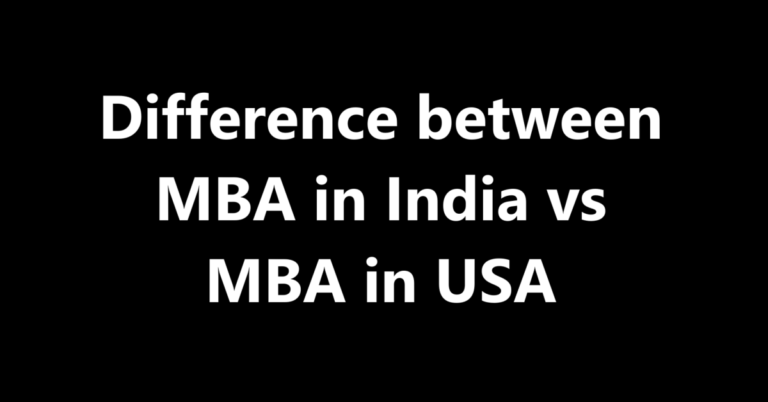The Moral Minefield: Is Taking a Bribe Good or Bad? (Exploring the Complexities of Corruption)
The question “Is taking a bribe good or bad?” seems, on the surface, incredibly simple. The gut reaction for most people is a resounding “bad!” And rightfully so. Bribery is widely recognized as a corrosive force, undermining trust, distorting markets, and hindering societal progress. However, simply labeling it as universally evil without understanding the nuances and justifications, however flawed, behind the act, leaves us ill-equipped to combat it effectively. This post delves into the complexities of bribery, examining the arguments against it, exploring potential (though ethically dubious) justifications, and ultimately reaffirming why it remains a destructive force in our world.
Is Taking a Bribe Good or Bad

The Overwhelming Case Against Bribery: A Laundry List of Negative Consequences
The condemnation of bribery stems from a multitude of well-founded concerns. Its negative impacts ripple across various levels, affecting individuals, organizations, and entire nations. Here’s a breakdown of the most significant detrimental effects:
- Erosion of Trust: At its core, bribery fundamentally undermines trust. It breaches the implicit contract we have with officials and decision-makers to act in the best interests of the collective. When individuals are susceptible to bribery, faith in institutions erodes, leading to cynicism and apathy. This distrust can then permeate other areas of society, making cooperation and social cohesion difficult.
- Distorted Markets and Unfair Competition: Bribery creates an uneven playing field. Companies that are willing to pay bribes gain an unfair advantage over those that operate ethically. This distorts market dynamics, leading to inefficiencies and resource misallocation. Legitimate businesses struggle to compete, innovation is stifled, and ultimately, consumers suffer from higher prices and lower quality goods and services. Imagine a construction company securing a lucrative government contract, not because of its superior capabilities or competitive pricing, but because it offered a hefty bribe. This could result in shoddy construction, cost overruns, and potential safety hazards.
- Hindered Economic Development: Bribery acts as a major impediment to economic development, particularly in developing nations. It discourages foreign investment, as investors are wary of navigating corrupt systems. Furthermore, it diverts resources away from essential public services, such as healthcare, education, and infrastructure, towards the pockets of corrupt officials. This perpetuates a cycle of poverty and inequality, hindering long-term economic growth.
- Weakened Governance and Rule of Law: Bribery weakens governance by allowing corrupt officials to operate with impunity. It undermines the rule of law, creating a system where decisions are based on personal gain rather than principles of fairness and justice. This can lead to political instability, social unrest, and even violence. A corrupt judiciary, for example, can protect criminals and persecute innocent individuals, eroding public faith in the legal system.
- Increased Crime and Security Risks: Bribery often facilitates other forms of crime, including drug trafficking, human trafficking, and terrorism. Corrupt officials may turn a blind eye to illegal activities in exchange for bribes, allowing criminals to operate with greater freedom. This can have devastating consequences for communities and national security.
- Moral Degradation: Beyond the tangible consequences, bribery has a profound impact on moral values. It normalizes unethical behavior, creating a culture of corruption where individuals are tempted to compromise their principles for personal gain. This erosion of moral character can have long-lasting effects on individuals and society as a whole.
Exploring the Labyrinthine Justifications (and Why They Ultimately Fail)
While the arguments against bribery are compelling, it’s important to acknowledge that individuals sometimes rationalize their participation in corrupt practices. These justifications, however weak and often self-serving, deserve examination to understand the motivations behind bribery and to develop more effective strategies for combating it.
- The “Grease Money” Argument: This argument suggests that small bribes, or “grease money,” are acceptable when they expedite routine administrative processes. The justification is that these payments simply lubricate the wheels of bureaucracy, allowing businesses to operate more efficiently. While the amounts involved may seem insignificant, the “grease money” argument is problematic for several reasons. Firstly, it can quickly escalate into larger bribes and more significant forms of corruption. Secondly, it reinforces a culture of inefficiency and encourages officials to deliberately slow down processes to solicit bribes. Finally, it unfairly disadvantages individuals and businesses that cannot afford to pay bribes.
- The “Cultural Norm” Argument: This argument claims that bribery is acceptable in certain cultures where it is deeply ingrained in social customs. The implication is that imposing Western ethical standards on these cultures is inappropriate. However, this argument is often used to justify unethical behavior and perpetuate corruption. While cultural sensitivity is important, universal principles of fairness and justice should not be compromised. Furthermore, many individuals within these cultures actively fight against corruption and advocate for ethical governance.
- The “Survival” Argument: In extreme cases, individuals may argue that they are forced to pay bribes to survive. For example, a business owner may have to pay bribes to avoid extortion by corrupt officials or to protect their employees from harm. While these situations are undoubtedly difficult, they do not justify bribery. Instead, they highlight the need for systemic reforms to address the root causes of corruption and protect vulnerable individuals.
- The “Ends Justify the Means” Argument: This argument suggests that bribery is acceptable if it achieves a desirable outcome, such as securing a contract that benefits the community or preventing a harmful project from proceeding. However, this argument is highly problematic. Bribery is inherently unethical and undermines the integrity of the decision-making process. Furthermore, it sets a dangerous precedent, encouraging others to engage in corrupt practices whenever they believe the ends justify the means.
It’s crucial to recognize that these justifications are, at their core, rationalizations for unethical behavior. They often mask self-interest, greed, and a lack of moral courage. While understanding these motivations is important, it should not lead to condoning or excusing bribery.
The Ethical Imperative: Upholding Integrity and Promoting Transparency
Ultimately, the answer to the question “Is taking a bribe good or bad?” remains a resounding “bad.” Bribery is a destructive force that undermines trust, distorts markets, hinders economic development, and weakens governance. While individuals may attempt to justify their participation in corrupt practices, these justifications are ultimately flawed and self-serving.
Combating bribery requires a multi-pronged approach, including:
- Strengthening Legal Frameworks: Robust laws and regulations are essential for deterring and punishing corruption. These laws must be effectively enforced, and corrupt officials must be held accountable for their actions.
- Promoting Transparency and Accountability: Transparency in government and business operations is crucial for preventing corruption. Open access to information, independent audits, and whistleblower protection mechanisms can help to expose and deter corrupt practices.
- Fostering a Culture of Ethics and Integrity: Education and awareness campaigns can help to promote ethical values and raise awareness about the dangers of corruption. Organizations should implement strong ethics programs and codes of conduct to encourage ethical behavior among their employees.
- Empowering Civil Society: Civil society organizations play a vital role in monitoring government and business activities, advocating for transparency, and holding corrupt officials accountable.
- International Cooperation: Bribery is a global problem that requires international cooperation. Governments and organizations must work together to share information, coordinate enforcement efforts, and promote international standards for combating corruption.
In conclusion, resisting the temptation of bribery is a moral imperative. It requires a commitment to integrity, transparency, and the rule of law. While the fight against corruption may seem daunting, it is a fight worth fighting. By upholding ethical principles and promoting good governance, we can create a more just, equitable, and prosperous world for all. The path of least resistance may sometimes seem paved with opportunities gained through bribery, but the long-term cost to individuals, societies, and economies is simply too high to bear. The pursuit of a better world demands a steadfast rejection of corruption in all its forms.


